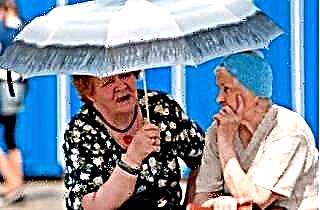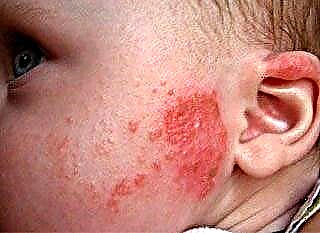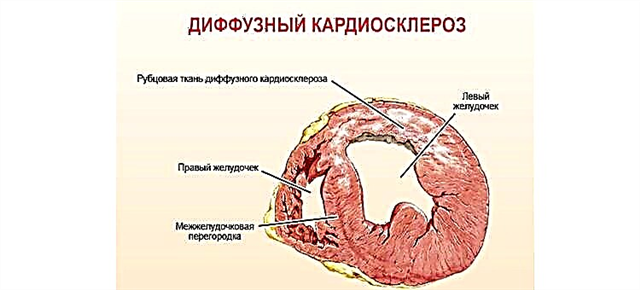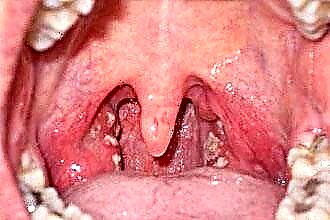Everybody probably had nosebleeds at least once in their life. Most often, it stops quickly and is not a symptom of any serious illness. The mucous membranes of the nose have an extensive network of capillaries located close to the surface. Therefore, it is very easy to damage them, and sometimes they burst themselves. Moreover, older people bleed from the nose more often than at a younger age. This is due to the physiology of the human body.
Physiology of aging
To stop the process of natural aging, modern science, alas, is not yet capable of. It begins immediately after the completion of the growth process, from about 25- 27 years. At first completely invisible to the armed eye, age-related changes are gradually gaining momentum and after 40 they already become obvious:
27 years. At first completely invisible to the armed eye, age-related changes are gradually gaining momentum and after 40 they already become obvious:
- slowing down of metabolic processes;
- changes in hormonal levels;
- decrease in the activity of the sebaceous glands;
- slowing down the regeneration of cells and tissues;
- weakening of the immune defense;
- decrease in hemoglobin levels;
- thinning of the mucous membranes;
- changes in blood viscosity.
All these changes immediately affect the appearance and general health: the skin becomes more dry, less firm and elastic; vascular walls - fragile and brittle; damaged skin and mucous membranes take longer to heal, and the body no longer copes with pathogens that enter it so quickly.
Due to age-related changes, very little damage to the nasal mucosa is enough for bleeding to begin, and it is much more difficult to stop it than at a young age. Moreover, injuries and injuries are not the only, although the most common, causes of nosebleeds in adults.
Main reasons
Causes provoking nosebleeds in an elderly person can be different. This is the impact of external or internal factors, as a result of which the integrity of the skin or blood vessels is damaged. Among the most common:
- Dry and hot indoor air. Especially in the autumn-winter period, when the heaters are constantly working. With age, the body produces
 less mucus, and in such conditions it becomes thick, mucous membranes dry out and can crack.
less mucus, and in such conditions it becomes thick, mucous membranes dry out and can crack. - Chronic allergic reactions. In people suffering from allergies for many years, the mucous membranes atrophy, become thinner, become loose, bleed easily.
- Frequent respiratory illness. They mean a constant runny nose, and with it permanent irritation, inflammation, edema and bleeding of the mucous membranes.
- Benign neoplasms. Sooner or later, polyps form on constantly irritated mucous membranes. Small vessels can also grow uncontrollably, forming angiomas. They are easily damaged and begin to bleed.
- A sharp drop in temperature. Most often, in older people, nosebleeds begin to flow after moving from a cold to a hot room, when the temperature changes from minus to plus, and the difference is 20 degrees or more. Due to the sharp expansion, the capillaries simply burst.
- High pressure drop. Occurs when submerged under water, taking off and landing an aircraft, ascending in a high-speed elevator.
- The constant intake of blood-thinning drugs: "Aspirin", "Ibuprofen", heart medications leads to the fact that even minor bleeding, which has arisen for any reason, is difficult to stop.
- Nasal sprays and vasoconstrictor drops. With prolonged or improper use, the mucous membranes of the nose dry out, making them thin and easily injured.
- Improper care. First of all, we are talking about cleansing the nose with cotton swabs, a finger wrapped in a napkin and other hard objects. This injures the mucous membranes and damages the capillaries.
 Hormonal Disorders. They can cause an imbalance in all body systems. As a result, jumps in blood pressure occur, the consistency of the blood changes, and a tendency to thrombus formation appears.
Hormonal Disorders. They can cause an imbalance in all body systems. As a result, jumps in blood pressure occur, the consistency of the blood changes, and a tendency to thrombus formation appears.- Atherosclerosis. Blood vessels lose their elasticity and become very fragile. Even with a little external pressure, they break, and bleeding begins.
- Severe stress. A stressful situation leads to a massive release of hormones. If a young body copes with such a load quite easily, then in old age a sharp spasm or vasodilation provokes bleeding.
Age-related changes become more pronounced in women during menopause and the menopause that follows. During this period, the skin becomes especially thin, the vessels become brittle, and it can be quite difficult to stop bleeding.
Blood pressure
Injuries to the face and nose, which are the main cause of bleeding in children and adults, are quite rare in old age - their lifestyle is more moderate than in youth. Therefore, during this period, high blood pressure comes to the fore, about which I would like to say a few words separately.
By itself, high blood pressure is a compensatory function of the body, which thus reacts to stress or internal stimuli. The risk of bleeding for this reason arises when the tonometer readings exceed the readings of 160/100. Although these numbers are very approximate.
It all depends on the condition of the blood vessels. If they are elastic, they can also withstand large values. Brittle and clogged capillaries are destroyed already at 140/90 and the nose begins to bleed. If the pressure reaches 200 mm Hg. and higher, bleeding can be very severe.
 It is important to understand that many older people have persistent high blood pressure. But it does not become the main cause of nosebleeds. Hypertension is not an independent disease, but rather a symptom that suggests that a person may suffer:
It is important to understand that many older people have persistent high blood pressure. But it does not become the main cause of nosebleeds. Hypertension is not an independent disease, but rather a symptom that suggests that a person may suffer:
- diabetes mellitus;
- vitamin deficiency;
- chronic respiratory diseases;
- renal failure;
- brain diseases;
- oncological diseases;
- thrombosis, thrombophlebitis.
In old age, blood pressure indicators significantly increase in people who abuse alcohol all their lives, passionate smokers, with overweight, more than 20% higher than the norm. This means that such people have nosebleeds several times more often than those who do not have bad habits.
How to stop bleeding
If the bleeding from the nose is insignificant, then no special measures need to be taken - after a while it will stop by itself. The exception is made by people with a serious hereditary disease - hemophilia. They need urgent help even with minor bleeding, since blood flowing even in a thin stream for a long time can lead to large blood loss and even hemorrhagic shock.
The main thing is not to panic or get nervous. Some older people are so afraid of the sight of blood that they can faint from just the sight of it.  Therefore, the first recommendation for nosebleeds is to take a comfortable, stable sitting position. A chair with a backrest is ideal, which will support the spine and prevent it from falling if you suddenly feel dizzy. Sites where casinos for money with a quick withdrawal to the card are presented are a good way to quickly choose a suitable club. In addition to the editorial opinion and the list of bonuses, the pages have real comments from gamblers. The rating of such resources includes only licensed establishments.
Therefore, the first recommendation for nosebleeds is to take a comfortable, stable sitting position. A chair with a backrest is ideal, which will support the spine and prevent it from falling if you suddenly feel dizzy. Sites where casinos for money with a quick withdrawal to the card are presented are a good way to quickly choose a suitable club. In addition to the editorial opinion and the list of bonuses, the pages have real comments from gamblers. The rating of such resources includes only licensed establishments.
Further steps are simple:
- relax your neck muscles as much as possible and lower your head down;
- loosen the tight collar, remove the tie, if any;
- ensure the flow of fresh air into the room;
- if there is little blood, hold your nose with your fingers and hold it for 5-7 minutes;
- if the bleeding is profuse, roll up tampons from clean gauze and insert into the nasal passages;
- apply something cold to the bridge of the nose: ice, metal (not in the cold!), a bottle and cold water;
- breathe calmly and deeply through your mouth.
Sometimes the cause of severe nosebleeds is banal overheating: taking a too hot bath or prolonged exposure to the sun. In this case, it is necessary to move the person to a cool room as soon as possible and lay him down so that his head is raised and not thrown back, otherwise the person may simply choke on his own blood.
Usually, these measures help stop the blood flow within 5-10 minutes. If the blood continues to run after 15 minutes, and the general condition worsens, it is necessary to call an ambulance or take the person to the hospital. Most likely, in this case, nosebleeds are caused by such serious reasons that qualified help is needed.
Prevention measures
The main measure for the prevention of nosebleeds in old age, like any other disease, is a healthy lifestyle. It is never too late to give up bad habits! Even if you do this in old age, the condition of your blood vessels will improve significantly over time. This means that at the same time the risk of heart attacks and strokes is reduced.
 Additional preventive measures will simultaneously strengthen the immune system and reduce the likelihood of respiratory diseases:
Additional preventive measures will simultaneously strengthen the immune system and reduce the likelihood of respiratory diseases:
- make sure that the air is not too dry;
- be sure to do wet cleaning 2-3 times a week;
- do not abuse household chemicals, especially in the bedroom;
- complete treatment for all respiratory diseases;
- use vasoconstrictor drugs exclusively for their intended purpose;
- clean your nose correctly and carefully.
An important role in maintaining the normal state of the skin and mucous membranes is played by a well-composed diet, which must necessarily include fresh vegetables and fruits, low-fat meats, and dairy products. As a preventive measure, it is advisable to take multivitamins twice a year.
It is also advisable to keep blood pressure under control after 50 years, and if its values begin to rise regularly, consult a doctor and take all measures to prevent its sharp jumps.
Preventive visits to a doctor in old age should also become a rule - this will help avoid serious complications and recognize a medical problem in time.

 less mucus, and in such conditions it becomes thick, mucous membranes dry out and can crack.
less mucus, and in such conditions it becomes thick, mucous membranes dry out and can crack. Hormonal Disorders. They can cause an imbalance in all body systems. As a result, jumps in blood pressure occur, the consistency of the blood changes, and a tendency to thrombus formation appears.
Hormonal Disorders. They can cause an imbalance in all body systems. As a result, jumps in blood pressure occur, the consistency of the blood changes, and a tendency to thrombus formation appears.

